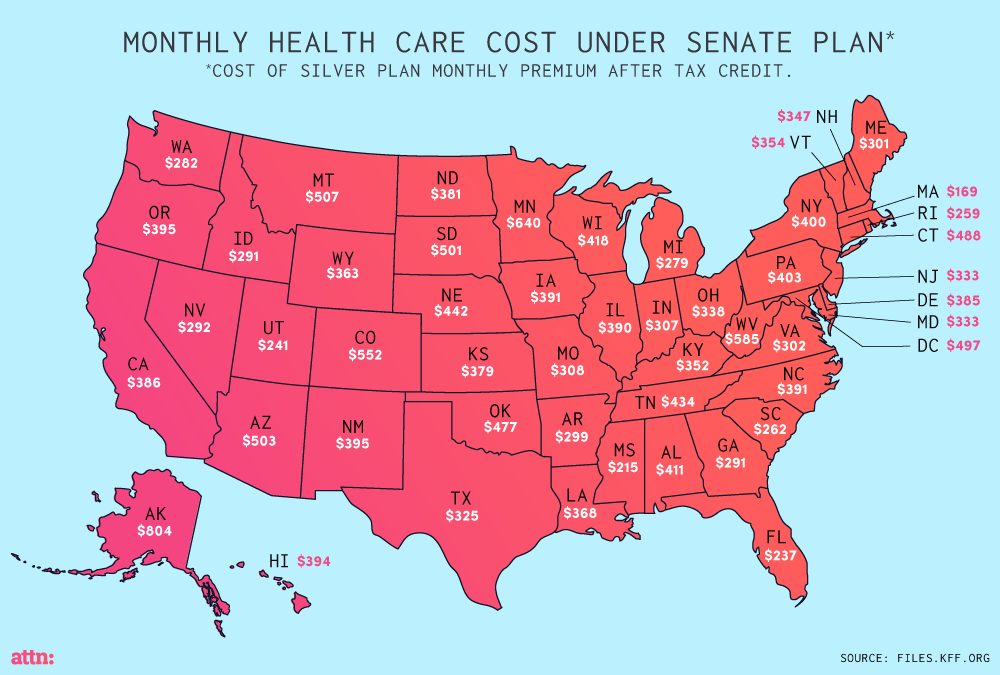Here's How Much Health Care Premiums Will Increase In Your State Under The Senate's Health Care Plan

By:
Republican officials have long complained about allegedlly rising premiums under the Affordable Care Act, but an analysis of their alternative indicates that monthly payments could become even more costly, at least at first.
The Kaiser Family Foundation, a health policy non-profit, estimated in a recent analysis that the Senate’s Obamacare repeal bill—known as the Better Care Reconciliation Act—would increase the average premium by 74 percent in 2020.
The foundation also estimated how each state would fair under the plan, finding that premiums will increase in every state.

Health care costs will increase in every state for nearly every age and income bracket eligible for premium tax credits under Better Care, but results vary widely. While some states would see a relatively low bump in prices, such as Vermont which would have the lowest increase at 21 percent overall, some states would see their costs skyrocket. Alabama, which sits atop the opposite end of this spectrum, would see an increase of 164 percent.
Researchers came to this conclusion after they used last year’s population and health care data, combined with information about the most common healthcare plan purchased by current enrollees, to compare the potential costs under Better Care with those under the Affordable Care Act in Kaiser’s Health Insurance Marketplace Calculator.
The swell of costs are the result of some major differences that Better Care has with the Affordable Care Act, which deal with changes to premium tax credit eligibility and amendments that require individuals to pay a percentage of income based on both their income and age rather than just their income. The result is that young people would generally see slight increases in healthcare costs while some senior citizens could see their costs more than double.
 Stocksy/Per Swantesson - stocksy.com
Stocksy/Per Swantesson - stocksy.com
It is possible that the potential surge in health care costs could be temporary, however. The Congressional Budget Office has reported that these premiums would fall to an average of 20 percent lower than under the current system by 2026, though the number of uninsured people at that same point would likely increase by 22 million.
The Senate’s plan allows slightly more people to remain insured than its House counterpart, which would increase the number of uninsured by 23 million. If the Senate bill passes, Congress will have to reconcile both the House and Senate versions of the Republican plans through a conference committee.
The House bill received some pushback among Republicans who were either worried that it dramatically increase the rate of uninsured in the country or that it left too much of the Affordable Care Act in tact.
